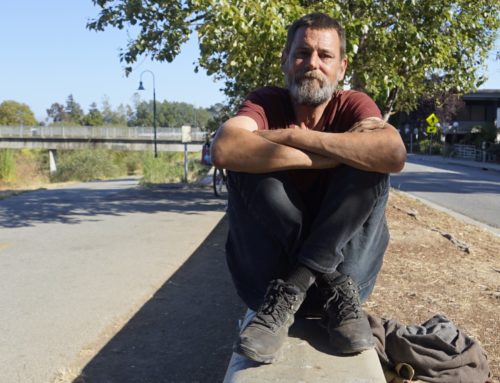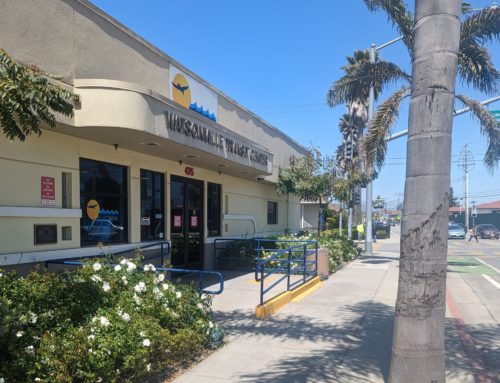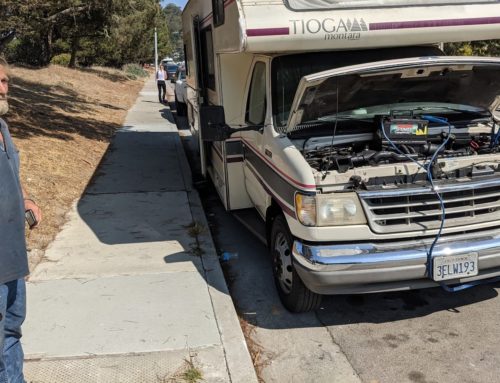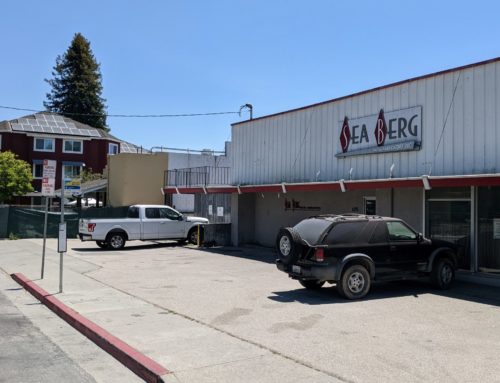Santa Cruz Local’s Jerimiah Oetting answers your questions about Project Roomkey, the state effort to provide hotel rooms to vulnerable parts of the homeless population. Where is Santa Cruz County at with the project? How much money did the state provide? How many rooms are there, and who qualifies? Jerimiah talks to a Project Roomkey resident, county officials and homeless service providers. This is the third installment of “Santa Cruz Local Answers,” where Jerimiah tackles your coronavirus-related questions.
Santa Cruz Local wants to answer your questions on the local response to the coronavirus. Ask us your questions in the survey below.
TRANSCRIPT
Our transcripts are usually only available to members. We offer coronavirus-related transcripts free as a public service. Help make sure everyone in Santa Cruz County can access fair and accurate journalism. Become a Santa Cruz Local member today.
JERIMIAH OETTING: I’m Jerimiah Oetting, this is Santa Cruz Local Answers. We’ve received a lot of questions about Project Roomkey. It’s a state initiative to house homeless people in hotel rooms during the COVID pandemic.
You wanted to know how the program is unrolling in Santa Cruz County, how much money has been given by the state, and why the project can’t provide hotel rooms to all of the area’s homeless people
Project Roomkey is already underway in Santa Cruz.
Many of the hotel residents are older, with medical issues that make them vulnerable. They’re people like Alfred Anthony.
ALFRED ANTHONY: It sounds like I’m gonna be in the motel room and for the duration.
JO: Anthony is 67 years old. He works as a night monitor at a shelter in Santa Cruz. He’s lived there for almost seven years. He has COPD, a respiratory disease. That, and his age, make him particularly vulnerable to COVID-19.
Project Roomkey is meant for the most vulnerable homeless people. Anthony is considered “Priority 4.” That means he hasn’t tested positive for COVID-19. He doesn’t have any symptoms. And, he hasn’t come into contact with anyone with the disease.
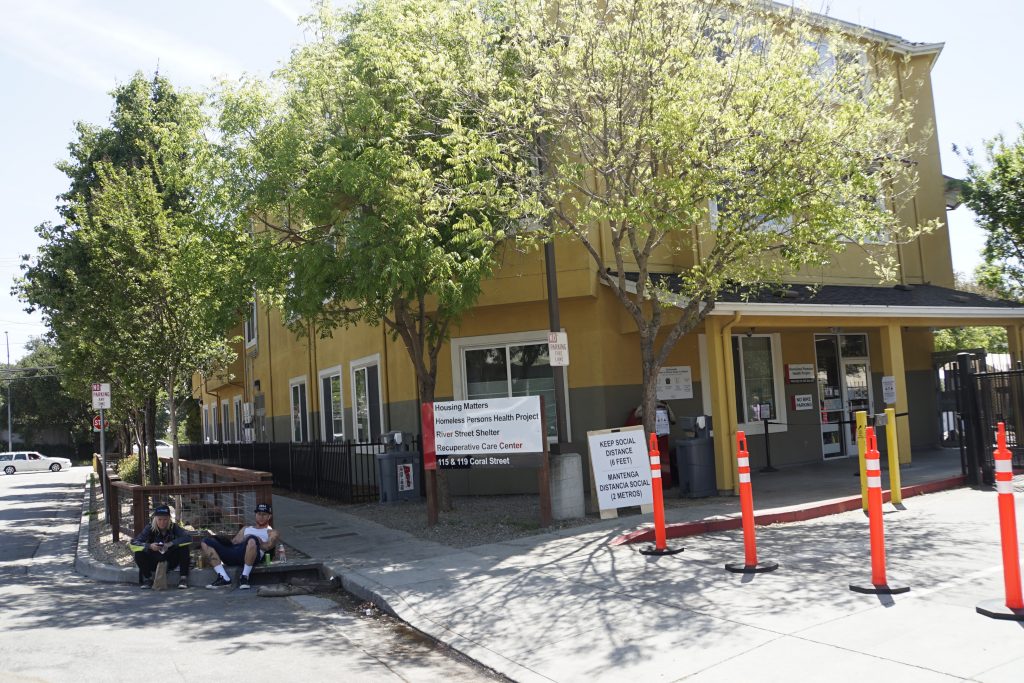
Anthony says someone from his shelter helped him fill out an application. That person sent it off to the County.
ANTHONY: I filled out the application on a Saturday night and I was in the motel room that following Tuesday.
JO: Anthony now has a place to shower and sleep. The privacy makes him less likely to get exposed to the coronavirus.
The program provides food, laundry and medicine. The idea is to prevent people from needing to leave. But there are also rules,, like no guests or weapons. And though he can come and go as he pleases, there is a 10 p.m. curfew.
The food is good, Anthony says.
ANTHONY: If they don’t give you vegetarian, because I’m a carnivore!
JO. Anthony says someone from the Homeless Persons Health Project, a clinic run by the County, visits on Tuesdays to consult with residents who may have health issues.
So far, nobody in Santa Cruz County’s homeless population has tested positive for COVID-19
But that could change. The program currently reserves five to seven empty rooms for high-priority people. Organizers say they could expand that number if necessary.
Governor Newsom announced Project Roomkey at the beginning of April. The goal is to obtain 15,000 rooms across the state. 150 of those will be in Santa Cruz County.
That’s based on models of the county’s local infection rate.
So far, Santa Cruz county has 62 rooms in two hotels. A third hotel will be available in Santa Cruz in mid-May. That would bring the count up to 117 rooms.
County officials are negotiating a lease at a fourth location in Watsonville.
Leslie Goodfriend is the Senior Health Services Manager for Santa Cruz County. She’s in charge of securing hotel contracts for the Roomkey project.
LESLIE GOODFRIEND: To be very clear that they are not hotel vouchers. The county is taking over hotels and we are operating them as shelters.
Goodfriend says it’s an expensive undertaking.
Besides food, laundry and medical care, the county also has to hire people for cleaning and 24 hour security. Finding enough people willing to do this work is another limiting factor.
The state promised Santa Cruz County $800,000 for Project Roomkey. That’s paid through reimbursements. It’s not one big check from the state.
GOODFRIEND: We are concerned that this is going to be a pretty decent financial impact and it’s not clear whether we’re going to need more resources financially in order to support this.
JO: Goodfriend says hotels have been willing to get involved with the program. It’s a way for them to make money during the pandemic.
GOODFRIEND: They’re happy to be working with us. And there are many other hotels that are interested in, in doing this work, but once again, between financial constraints and staffing constraints, you know, we’re, we’re limited to what we can do.
JO: Because of these limitations, Project Roomkey has received some criticisms.
BRENT ADAMS: When we talk about Project Roomkey, I give it a thumbs down so far.
JO: That’s Brent Adams. He runs the Warming Center Program. It provides services for homeless people in Santa Cruz. I spoke to him early last week.
ADAMS: I just know from my clients, they said they’re trying to get motels there. They’re told they’re on waiting lists, and they’re behind people who are in worse condition than they are.
JO: Staff at shelters can help the people staying there apply for a hotel room. But Adams says that intake process leaves behind people who don’t stay at shelters, even if they are medically vulnerable.
People not at shelters can apply by email. The forms are online at the county’s human services department website. People can also call a hotline to apply. That number is 831-291-5098.
The application then needs approval from a public health nurse.
For people without internet access or phones, navigating that referral process can be difficult. And the majority of Santa Cruz County’s homeless population doesn’t stay at shelters.
As of 2019 about 1,700 of the county’s nearly 2,200 homeless people did not have shelter. That’s according to the homeless point-in-time count report by Applied Survey Research.
Because there isn’t enough money to put all those people in hotel rooms, Project Roomkey is only one part of the county’s response.
County staff have created new shelters at the veteran halls in Santa Cruz and Watsonville.
This week, the county created a new shelter at Coral street in Santa Cruz, across the street from Housing Matters. It’s 17 tents in a parking lot. The city and housing matters helped organize it.
Simpkins Family Swim Center in Live Oak is also a shelter. It’s for people between the ages of 18 and 25.
The county has also distributed tents, blankets and other supplies. The idea is to encourage social distancing for people who aren’t at shelters.
All of this represents a bigger investment by the county into homeless services over the past few weeks. The question is, will any of this continue when the pandemic ends?
For now, Alfred Anthony says he likes having his own room and shower, and the decent food. But he feels a little lonely.
ANTHONY: OK, it’s a little boring. I do a lot of sleeping. The first five days I was here, that was all that was all I did. But I do miss the camaraderie of the revolving shelter because I had been there for so long that I got so used to what I was doing.
But, other than that, I enjoy it.
[MUSIC]
JO: If you have a question you’d like answered, feel free to submit it at santacruzlocal dot org slash coronavirus.
If you want your voice featured in our podcast, you can send me a voice memo at [email protected]. Or, feel free to call us at 831-222-0460 and leave a voicemail.
I’m Jerimiah Oetting. Stay healthy out there.

